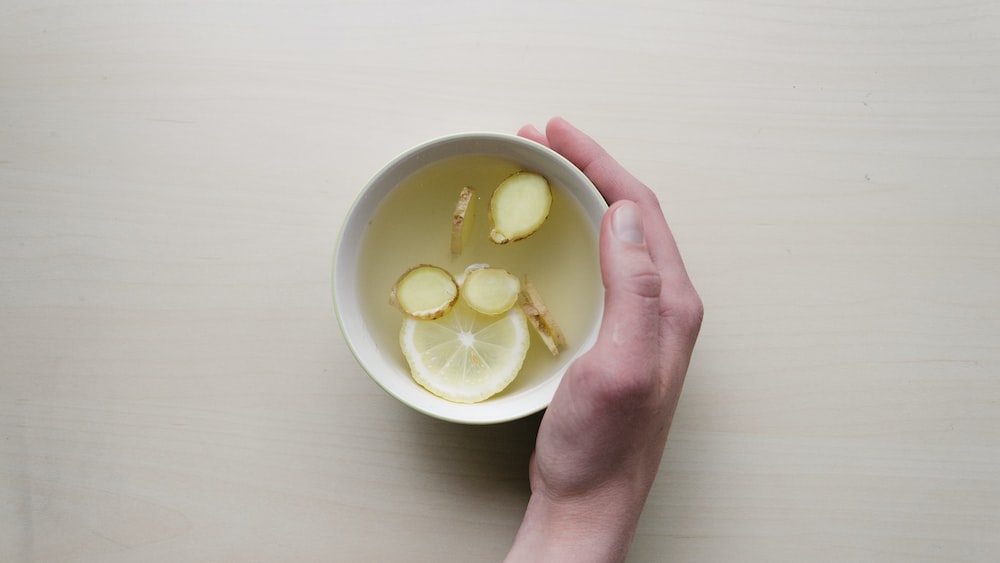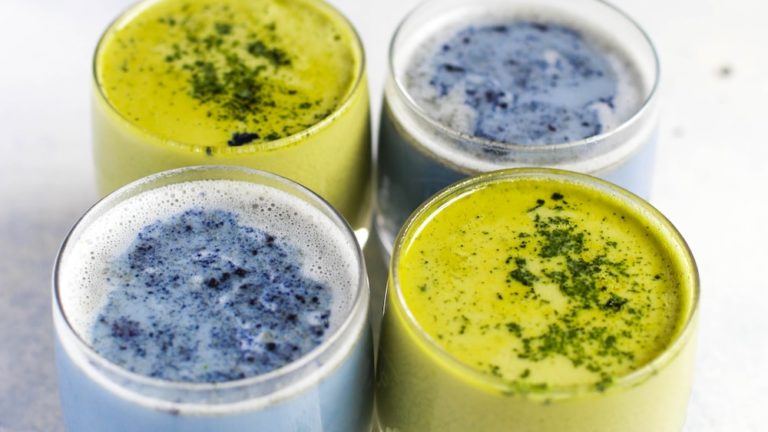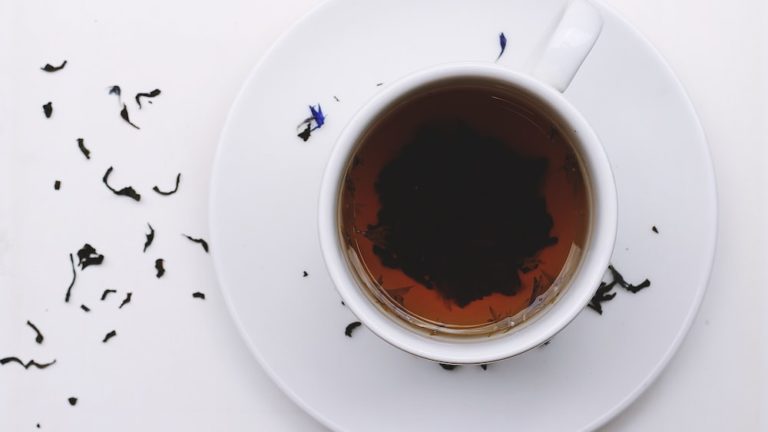Unlocking Fermented Tea Benefits: The Secret Health Elixir

Unlocking Fermented Tea Benefits: The Secret Health Elixir
Hello there, fellow tea aficionados and wellness warriors! Are you ready to steep yourselves in the delicious world of fermented tea benefits? Well, I’ve got the kettle on, so let’s dive in together!
Grab your favorite mug, my friends, because we’re about to embark on a bubbly journey through the depths of fermented teas – those mystical brews that dance a tantalizing tango with your health. These are not your grandma’s bland herbal concoctions; oh no, we’re talking about kombucha, and other delightful fermented delights that’ll make your taste buds somersault with joy and your gut flora throw a fiesta.
You see, fermented teas are like the undercover agents of the beverage world, sneaking in health tips with every sip while singing ballads of well-being. So, get comfy, sip slowly, and let’s unravel the secrets behind this extraordinary potion, shall we?
The Essence of Fermented Tea
Now, what’s all the fuss about fermented tea, you ask? Well, let me tell you, it’s a bit like discovering a treasure chest in your backyard. Fermented tea is the kind of beverage that not only tingles the senses but also comes packed with a trove of health marvels.
Defining Fermented Tea and Its Varieties
Let’s set the stage with a little introduction to our star performer: fermented tea. In the simplest of terms, it’s tea that’s been through a fabulous transformation, thanks to the magic of microbes and time.

- Add on a little fermentation, and voilà, you’ve got a fizzy, zippy drink that’s rich in flavor and health benefits. Unroll the red carpet for the stars of the show: kombucha, with its tangy charisma; pu-erh, exuding earthy wisdom; and kefir tea, the bubbly social butterfly.
There’s a fermented tea out there to tickle every palate and suit every wellness routine. Whether you fancy a bold kombucha brew or a mellow cup of jun tea, the variety is as vast as the benefits are profound.
Fermented tea offers a wide variety of flavors and health benefits, making it suitable for everyone’s wellness routine.
The Ancient Origins and Modern Resurgence
Let’s time travel for a moment, shall we? Fermented tea didn’t just walk onto the wellness scene; it has roots that intertwine with ancient history, whispering tales of Asian ancestry and traditional remedies.
- Picture this: a bustling Chinese marketplace, countless moons ago, with wise sages passing down the secrets of fermented teas like priceless heirlooms. These teas have journeyed through time, and now they’re having a modern renaissance! Everyone from hipster cafes to health-obsessed influencers is riding the kombucha wave, and for good reason.
They’re a link to our past, infused with wisdom, offering both comfort and cutting-edge health perks in our fast-paced lives. It’s history in a cup, with a side of probiotics and ample fermented tea benefits.
The Probiotic Power of Fermented Tea
Speaking of probiotics, have you ever thought about what’s brewing inside your gut? Let’s take a microscope to the teeming metropolis of bacteria that’s pivotal to our health, with fermented tea playing the role of superhero.
Understanding Probiotics and Gut Health
Imagine your gut like a bustling city, with the good bacteria acting as the diligent police force maintaining peace andorder. Probiotics? They’re the reinforcements.
- When your gut flora is thriving, your digestive health sings a chorus of harmony. But when the balance tips, chaos ensues – think bloating, discomfort, and the dreaded indigestion. Enter the hero of our tale: probiotics in fermented tea.
These microscopic marvels can soothe your internal ecosystem, keeping the peace and harmony in that delicate metropolis under your belly button.
How Fermented Tea Acts as a Probiotic Source
Curious how fermented tea dons its cape and flies to the rescue? It’s all about the live cultures, my friends. They dive into your gut faster than you can say “digestive health”.
- These tiny bacterial buddies are like the gardeners of your gut, planting beneficial flora that bloom into a healthy, happy digestive tract.
- They’re the unsung heroes behind that flat tummy and glowing complexion you’ve been eyeing in the mirror. And that pep in your step? You’ve got probiotics to thank for that, too.
Kombucha and other fermented teas don’t just tantalize your taste buds; they’re a symphony of fermented tea benefits for your insides, striking the right chords for a harmonious gut concerto.
Antioxidants in Fermented Tea
Think of antioxidants as your body’s personal cleanup crew, sweeping away the unwanted riffraff that can lead to all sorts of health kerfuffles. And you guessed it – nestled within the depths of fermented tea is a mighty arsenal of these microscopic defenders.
The Role of Antioxidants in Overall Health
Antioxidants are like the knights in shining armor in the battlefield of your body, courageously fighting off the invaders known as free radicals – mischievous molecules that love to party a little too hard with your cells.
- They’re the behind-the-scenes workers, maintaining order and keeping the cellular peace.
- With each gulp of fermented tea, you’re enlisting a veritable army of these antioxidative soldiers into your system.
Their mission? To safeguard your health and zestfulness, allowing you to enjoy a radiant life with fewer health hiccups along the way. Because, let’s face it, who doesn’t want their cells to age like fine wine instead of ripe bananas?
Antioxidant Types Found in Fermented Tea
Within the enigmatic elixirs of fermented teas, a kaleidoscope of antioxidant allies awaits to leap into action.
- We have polyphenols: the wise old sages of antioxidants, whispering secrets of longevity and well-being.
- Then we find flavonoids: the vibrant fighters that give plants their colorful garb and double as your cellular bodyguards.
Each cup of fermented tea is a veritable cornucopia of these age-defying, health-pioneering compounds.
- Take a sip, and you’re not just pleasing your palate; you’re hosting an antioxidant party that would make even the healthiest cells blush with excitement.
- It’s a molecular jamboree that could just add a few extra chapters to the storybook of your life.
Fermented tea is a treasure trove of antioxidants that can contribute to longevity and overall well-being.
Fermented Tea and Cardiovascular Health
Roll out the red carpet and sound the trumpets, for our beloved fermented tea has another card – quite literally – up its sleeve: championing cardiovascular health.
How Fermented Tea May Reduce Heart Disease Risk
Did you know your cup of fermented tea could be a silent guardian, a watchful protector of your ticker? Yes, it’s no longer an urban legend whispered in the tea aisles; emerging research is singing ballads about fermented tea benefits for the heart.
- Imagine fermented tea as a loyal knight standing guard, helping to keep the cholesterol dragons at bay and your blood vessels more flexible than a seasoned yogi.
- It’s like having an ace in your pocket during the high-stakes game of cardiovascular well-being, and it’s as delicious as it is effective.
Sip by sip, you may very well be paving the road to a heartier life, fortified against the foes of heart disease. Cheers – to your health, and to mine!

The Interplay Between Fermented Tea and Cholesterol Levels
Have you ever considered that your morning brew could be a secret agent working tirelessly in the murky shadows of cholesterol management? Well, put on your detective hat because fermented tea might just be the partner you need in this covert operation. Research advancements have suggested a fascinating relationship between fermented tea consumption and cholesterol levels.
Here’s the scoop: fermented tea, a bastion of bioactive compounds, may play a role in reducing LDL (the notorious ‘bad’ cholesterol) while giving a nudge to your HDL (the ‘good’ one riding its high horse). It’s like watching a well-choreographed dance where the tea components mingle with our bodily functions, potentially leading to a harmony in cholesterol profiles. So next time you take a sip, imagine those microscopic warriors getting down to business in your bloodstream, as part of the broader umbrella of fermented tea benefits.
Fermented Tea’s Potential in Diabetes Management
Oh, the sweet betrayal of sugary treats and the consequent rise of the diabetes specter! But what if I told you there’s an ally lurking in your teapot, ready to stand guard against this sweet storm? Fermented tea steps into the fray, flaunting its potential role in the epic battle for glucose regulation and diabetes management – a blossoming field within health topics worthy of expertise and attention.
The Impact on Blood Sugar Levels
Imagine, if you will, a mighty fortress standing against a relentless tidal wave of sugar attempting to breach its walls – that’s sort of how fermented tea works to potentially stabilize blood sugar levels. Packed with biological mavericks, it might just help in slowing down the body’s sugar absorption post a decadent feast.
Research advancements have turned the spotlight on this ancient brew, exploring its effects on enzymes involved in sugar metabolism, and the results are brewing up quite the interest. All this falls under the grand canopy of fermented tea benefits, which may be a boon for those struggling with managing their sweet swirling whirlpool of blood glucose.
Type 2 Diabetes and Fermented Tea Consumption
Now, here is where the plot thickens – type 2 diabetes, meet your match. There’s emerging evidence that suggests fermented tea could be an unsung hero for those wrestling with this condition. Studies show regular consumption may lead to improved insulin sensitivity – the body’s responsive handshake to the hormone insulin.
This isn’t your usual run-of-the-mill anecdote, but findings solidifying the reputation of fermented tea in health topics associated with diabetes. It’s as though the tea leaves are whispering wisdom built on centuries-old tea culture mingled with cutting-edge science. Who knew that your simple teacup housed such a robust agent for change?
Fermented Tea as a Cancer-Fighting Ally
Stepping into the ring with much fanfare is fermented tea, potentially donning the cape of a cancer-fighting ally. With an issue as critical as cancer, one cannot help but lend an ear to the whispers of research, which propound the presence of compounds in fermented tea that could spar with cancerous cells.
Studies on Fermented Tea and Cancer Prevention
Cancer has undoubtedly taken center stage among today’s most pressing health topics, but what if fermented tea, that unassuming character in the corner, plays an important scene-stealing role? In the vast labyrinth of cancer research, there are corridors that lead to fermented tea benefits suggesting a contribution to cancer prevention.
- In recent studies, scientists have found that certain components in fermented tea may have the potential to inhibit the growth of cancer cells.
- Not just stopping there, these natural substances might step up as chemo-preventive agents, a fancy term for components that prepare healthy cells to defend themselves against the dark arts of carcinogens.
While scientists don their lab coats and continue to investigate, it’s clear that fermented tea could very well be a natural understudy on this serious stage.
Fermented tea may have the potential to inhibit the growth of cancer cells and prepare healthy cells to defend themselves against carcinogens, making it a possible contributor to cancer prevention.
The Mechanisms Behind Fermented Tea’s Protective Effects
For those diving deep into the pools of health knowledge, the topic of cancer prevention and fermented tea benefits presents an intricate ballet of cellular interactions worthy of attention. Here’s how this might play out:
- Initially, antioxidants from fermented tea swing into action, neutralizing free radicals – those microscopic troublemakers linked to cancer development.
- Following this, fermented tea’s polyphenols may decide to meddle with cancer cell signalling pathways, essentially putting up roadblocks to thwart their infamous proliferation.
It’s this intricate interplay, part of broader research advancements, that’s garnering nods from the health savants, aligning with the expertise around cancer’s molecular intricacies.
Fermented Tea for Immune Support and Inflammation Reduction
When the conversation steers towards immune support and inflammation reduction, fermented tea saunters in with a swag only a beverage so steeped in culture and science can carry. It’s an ongoing saga, plucked from the annals of traditional wisdom and penned anew with contemporary research.

Strengthening the Immune System Naturally
Elevating the drama on immune support, fermented tea plays a character that’s understudied but fiercely potent. Picture your immune system as a bustling city – and fermented tea? It’s the urban planner, introducing infrastructure that can help:
- Boost the production of regulatory T cells, the peacekeepers maintaining order.
- Foster the growth of beneficial gut microbes, the unsung heroes in the metropolitan plot of your immune narrative.
It’s no mere anecdote but a promising nexus of fermented tea benefits and innate defense strategies, bubbling up as a hot topic among new health trend discussions.
The Anti-inflammatory Properties of Fermented Tea
In the epic tale of the human body, inflammation often emerges as the fire-breathing dragon causing chaos across the kingdom. Enter fermented tea, the elixir wielded by knights in microbial armor, engaging in battle with inflammations’ fiery tendrils.
Here are the antics at play:
- Fermented tea contains compounds known for their anti-inflammatory prowess.
- It’s the biochemical equivalent of sending cooling rain to quench inflammatory flare-ups throughout the realm of the body.
Part of a larger conversation on natural remedies, these fermented tea benefits are a flourishing field in health topics, weaving tradition and modern health insights into a rich tapestry.
Fermented tea contains compounds known for their anti-inflammatory prowess.
The Detoxifying Effects of Fermented Tea
If your body were a bustling metropolitan city, toxins would be the traffic jams clogging up the works. The intriguing promise of fermented tea lies in its potential role as the savvy traffic warden, helping to ease the congestion and restore the flow of health.
Understanding Detoxification
Detoxification, that elusive process that we often associate with spa retreats and juice cleanses, right? But it’s actually a sophisticated ballet performed by your liver and other organs, tirelessly twirling to eliminate toxins. These substances can range from environmental pollutants to metabolic waste, all itching for a grand exit from the body’s extraordinary gala.
This natural detox system, indeed, is like an efficient waste management crew, working around the clock. Our role? To provide them with the right tools and environment to keep the dance floor, aka our body, in tiptop shape. Think of fermented tea as the broom that keeps the ballroom gleaming – more on that soon!
How Fermented Tea Contributes to Body Detox
Now, imagine fermented tea flouncing into the detox party like a well-trained squad of maids – ready to tidy up! Rich in beneficial compounds, this ancient brew assists our internal custodians by promoting the elimination of waste through various loopholes and backdoors your body keeps on the down-low.
First off, it supports liver function, the nightclub bouncer of our body, who’s always on the lookout for gatecrashers. Not only does it lend a helping hand, fermented tea bolsters the gut – our body’s VIP area. A healthy gut microbiome is like having an elite cleanup crew that ensures everything’s running smoothly.
Lastly, it’s all about antioxidants that come bearing gifts of restorative powers. They’re like the janitors that magically transform chaos into order, targeting free radicals and showing them the exit. The showstopper? They leave behind a stage that’s dazzling for the next performance – a hearty toast to our well-being.
Safety and Preparation of Fermented Tea
Embarking on a fermented tea venture is surely enticing, with all the buzz about health perks. Right out of the gate, one must understand that the preparation and handling of this bubbling elixir demand attention.

Best Practices for Fermented Tea Preparation
First off, sanitation is king in the land of fermented tea. Always, and I mean always, start with spotless equipment – it’s like setting the stage for a microbial Broadway debut. As for the script, carefully choose high-quality tea leaves and fresh, clean water; they’re the lead actors in this fermentation play.
Maintain the right fermentation time – not too short, not too long – to avoid the plot twist nobody wants: a batch of over-fermented, sour-tasting potion. Just like a properly rehearsed dance routine, the correct timing allows for a performance that leaves everyone in awe of the flavors unspooling in each sip.
Sanitation and quality ingredients are crucial for successful fermentation, just like setting the stage for a performance.
Recognizing and Avoiding Risks Associated with Fermented Tea
So, you’ve decided to brew your own batch of fermented tea. Bravo! But hold your horses – it’s not just a walk in the park. The number one rule: keep unwanted microorganisms off the guest list. An uninvited mold or a band of reckless bacteria can quickly turn a health-promoting brew into a potentially dangerous concoction.
Pro tip: keep an eagle eye for any odd colors or smells that shouldn’t be at this tea party – a funky shade of green or a whiff of unmistakable rancidity. Always trust your senses; they’re the bouncers at this exclusive event. If something feels off, show it the door.
And remember, while variety is the spice of life, some individuals might find certain teas harder to stomach. Listening closely to your body’s whispers – or in some cases, roars – can be the difference between a nourishing experience or a not-so-pleasant one.
FAQs
1. What are the most common types of fermented tea?
The most common types of fermented tea include pu’erh, kombucha, and dark teas like Anhua dark tea. Each boasts unique fermentation methods and flavor profiles, ranging from earthy to tart.
2. How does fermented tea improve gut health?
Fermented tea improves gut health by supplying probiotics, which can enhance the gut microbiome’s diversity and functionality. This forms a part of a healthy digestive system.
3. Can fermented tea help with weight loss?
Fermented tea can help with weight loss through its potential to boost metabolism and aid in digesting. However, it should be paired with a balanced diet and exercise.
4. Are there any risks involved in drinking fermented tea?
The risks involved in drinking fermented tea are mostly related to the preparation process. Proper hygiene must be maintained to avoid contamination and spoilage.
Conclusion
In waltzing through the realms of fermented teas, we’ve not only unlocked many fermented tea benefits but also acquainted ourselves with their beaming roles in detox and health. It’s akin to discovering a lost secret scroll that unravels the mysteries of longevity and vitality.
Now armed with knowledge on safety and preparation, and understanding the importance of probiotics, antioxidants, and potential risks, we’re all set to imbibe in the joys of fermented tea – all while marveling at its good for you qualities and scientifically backed data on how it can sweeten the tune of our daily lives.
Remember, in each brew lies a narrative of culture, science, and the promise of wellness. As our teapot steeps into the sunset, let’s raise our cups with a heart full of anticipation for the healthful journey that awaits. Until we meet again over another cup of this remarkable potion, take care, and savor each sip. With warmth, Zoe.






